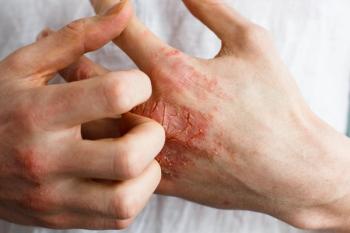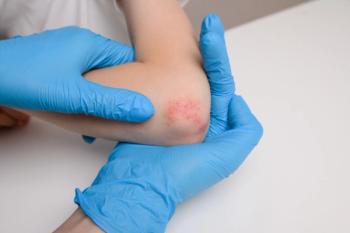
Dermatology Drug Pipeline Updates
A look at the revolutionary and evolutionary advances shaping dermatology in 2022.
Janus kinase (JAK) inhibitors show no signs of relinquishing their 2021 status as the hottest topic in dermatology anytime soon, predicted Kathleen Haycraft, DNP, FNP-BC, DCNP, FAANP, in her presentationat the 3rd annual Society of Dermatology Nurse Practitioners (SDNP) Annual Symposium, held April 22 to 23, in Nashville, Tennesse.1 However, the big news doesn’t stop there. A robust FDA pipeline and mounting demand for both medical and aesthetic dermatology services could drive change across the specialty, she added.
Haycart, a member of the board of directors, American Association of Nurse Practitioners, in Austin, Texas, outlined her list of the advances and issues likely to dominate the “what’s new?” conversation for the dermatology community in 2022.
JAK Inhibitors
These small-molecule drugs hit the headlines in September 2021 with the FDA’s approval of ruxolitinib (Opzelura; Incyte), the US’s first topical JAK inhibitor specifically approved to treat moderate to severe atopic dermatitis (AD) in patients who had failed established therapies. Two oral JAK inhibitors, upadactinib (Rinvoq; AbbVie) and abrocitinib (Cibinqo; Pfizer), expanded the AD armamentarium with FDA approvals in January 2022.2-4 Although the FDA required all 3 to carry a black box warning after an extension study on tofacitinib (Xeljanz; Pfizer)—which is approved to treat rheumatoid arthritis—revealed the risk of life-threatening adverse effects, their efficacy and safety profiles achieved in clinical trials make them worth watching, according to Haycraft, who added that, “We need to see how their safety signals play out.”5
Medical professionals will have ample opportunity to consider JAK inhibitors’ potential this year, she noted. In addition to FDA reviews for possible approvals to treat psoriasis, vitiligo, and alopecia areata, Haycraft pointed out that pipeline studies and clinical trials are also evaluating this drug class’s potential for treating lichen planus, sarcoidosis, lupus, recalcitrant dermatomyositis, and hidradenitis suppurativa.
“The indications of JAK inhibitors are going to broaden,” Haycraft said. “The research on their use for lichen planus looks very good. That’s important since this disease state can be very difficult to treat. I’m also excited about its possible application for patients with recalcitrant dermatomyositis as I’m currently seeing a number of patients with this condition. Hidradenitis suppurativa has always been a challenge, so it will be interesting to see how this drug class performs in treating it.”
Although Haycraft will be monitoring for adverse effects (AEs), she said, “I think JAK inhibitors will change the landscape for patients with skin disease that have been very difficult to treat.”
Psoriasis Treatments
“How many of you are old enough to remember when treating psoriasis meant you just put the patient under UV-light? And what about the humiliation patients felt when their bodies were covered with tar and wrapped with plastic wrap—all of which had to be reapplied every few hours?” she asked attendees. “The landscape of psoriasis treatment has been evolving for centuries, but some of the biggest advances have all come in the last 10 years. Now, you can pick your drug for each patient, and they all work really, really well.”
More biologics could join the list of FDA-approved treatment options alongside guselkumab (Tremfya; Janssen). Additionally, the options for treating moderate to severe plaque psoriasis and psoriatic arthritis are expected to increase. Bimekizumab (Bimzelx, UCB) and Taparinof cream (Dermavent Sciences) could be added to the plaque psoriasis armamentarium. A new direction could be Evelo Biosciences’ EDP1815 psoriasis treatment, an orally administered, gut-restricted SINTAX medicine now in phase 2 clinical trials.
Skin Health Advancements
“Tape is changing the world and reducing the number of unnecessary biopsies,” Haycraft said. “We knew about using them for cancer, dysplastic nevi, and melanoma, but now we can tape for atopic dermatitis and psoriasis. And, not only that, but we can use those tape strips to determine which drug will work best.”
She cautioned about an insurance-related downside. “Let’s say the tape says an IL-23 blocker should work but doesn’t,” she said. “That can cause problems with insurance approvals. It may limit your choices. But I think there is more good than bad.”
“There are more practitioners getting their patients in a gown and doing a head-to-toe screening for melanoma,” Haycraft said. “The mortality reduction in melanoma is exciting and I attribute a lot of that to these improved screening practices.”
Aesthetics Questions
For cosmetic treatment safety, Haycraft is less optimistic. “There are so many cosmetic treatments that are not being monitored,” she said. She mentioned issues such as the rising incidence of paradoxical adipose hyperplasia after cryolipolysis.
While these topics will make headlines in 2022, Haycraft said that it is worth giving some standby treatments another look, as well. “Sometimes when there is a new medication, it makes you reevaluate older products.”
Disclosures: Haycraft has served on advisory boards for BioFrontera, LEO Pharma, Ortho-Derm and UCB and has advised Regeneron.
References
- Haycraft K. Hot topics in dermatology. Presented at: The Society of Dermatology Nurse Practitioners Annual Symposium; April 22-23, 2022; Nashville, TN.
- Incyte announces U.S. FDA approval of Opzelura (ruxolitinib) cream, a topical JAK inhibitor, for the treatment of atopic dermatitis (AD). BusinessWire. Published September 21, 2021. Accessed April 22, 2022.
https://www.businesswire.com/news/home/20210921006072/en/Incyte-Announces-U.S.-FDA-Approval-of-Opzelura%E2%84%A2-ruxolitinib-Cream-a-Topical-JAK-Inhibitor-for-the-Treatment-of-Atopic-Dermatitis-AD - U.S. FDA approves RINVOQ (upadacitinib) to treat adults and children 12 years and older with refractory, moderate to severe atopic dermatitis. AbbVie Inc. Published January 14, 2022. Accessed April 22, 2022. https://news.abbvie.com/news/press-releases/us-fda-approves-rinvoq-upadacitinib-to-treat-adults-and-children-12-years-and-older-with-refractory-moderate-to-severe-atopic-dermatitis.htm
- U.S. FDA approves Pfizer’s CIBINQO (abrocitinib) for adults with moderate-to-severe atopic dermatitis. Pfizer. Published January 14, 2022. Accessed April 22, 2022.
https://www.pfizer.com/news/press-release/press-release-detail/us-fda-approves-pfizers-cibinqor-abrocitinib-adults - Rinvoq and Cibinqo janus kinase (JAK) inhibitors approved by FDA with boxed warnings and restrictive labeling. Global Data. News release. Published January 25, 2022. Accessed January 25, 2022.
https://www.globaldata.com/rinvoq-cibinqo-janus-kinase-jak-inhibitors-approved-fda-boxed-warnings-restrictive-labelling-says-globaldata/
Newsletter
Pharmacy practice is always changing. Stay ahead of the curve with the Drug Topics newsletter and get the latest drug information, industry trends, and patient care tips.























